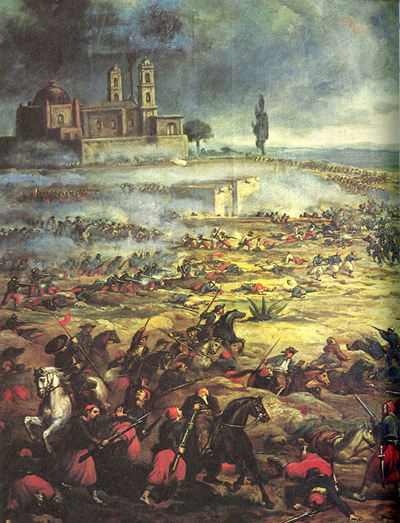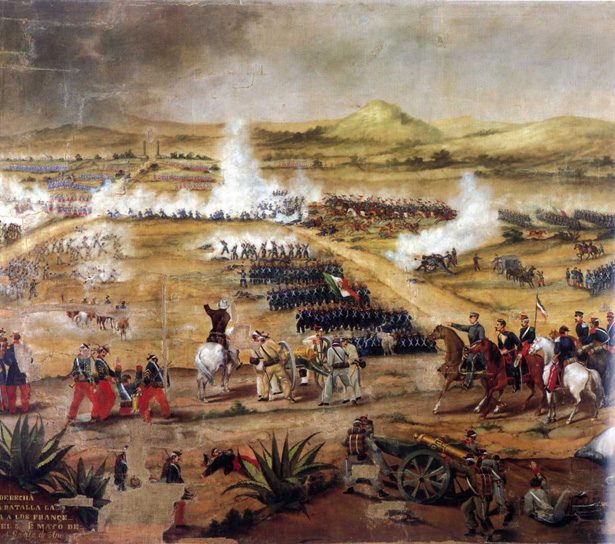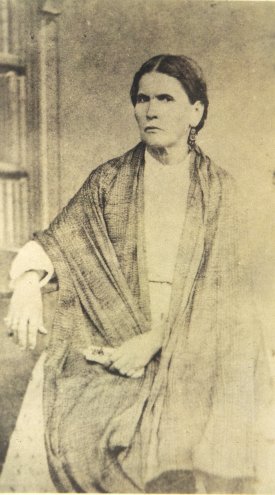|
Fiestas Patrias (Mexico)
Fiestas Patrias () in Mexico originated in the 19th century and are observed today as five public holidays. Aniversario de la Constitución This day () commemorates the Constitution of 1917, promulgated after the Mexican Revolution on February 5. Article 74 of the Mexican federal labor law (''Ley Federal del Trabajo'') provides that the first Monday of February (regardless of the date) will be an official holiday in Mexico marking this occasion. This was a modification of the law made in 2005, effective since 2006; before that, it was celebrated on February 5 regardless of the day of the week in which the date occurred. Natalicio de Benito Juárez This day () commemorates President Benito Juárez's birthday on March 21, 1806. Juárez is popularly regarded as Mexico's greatest president, who instituted the separation of Church and State in the ''La Reforma'' (Liberal Reform in Mexico). Juárez is recognized as a hero across the Americas for his resistance to European recoloniz ... [...More Info...] [...Related Items...] OR: [Wikipedia] [Google] [Baidu] |
Mexico
Mexico ( Spanish: México), officially the United Mexican States, is a country in the southern portion of North America. It is bordered to the north by the United States; to the south and west by the Pacific Ocean; to the southeast by Guatemala, Belize, and the Caribbean Sea; and to the east by the Gulf of Mexico. Mexico covers ,Mexico '' The World Factbook''. . making it the world's 13th-largest country by area; with approximately 12 ... [...More Info...] [...Related Items...] OR: [Wikipedia] [Google] [Baidu] |
Grito De Dolores
A ''grito'' or ''grito mexicano'' (, Spanish for "shout") is a common Mexican interjection, used as an expression. Characteristics This interjection is similar to the ''yahoo'' or ''yeehaw'' of the American cowboy during a hoedown, with added ululation trills and onomatopoeia Onomatopoeia is the process of creating a word that phonetically imitates, resembles, or suggests the sound that it describes. Such a word itself is also called an onomatopoeia. Common onomatopoeias include animal noises such as ''oink'', '' ... closer to "aaah" or "aaaayyyyeeee", that resemble a laugh while performing it. The first sound is typically held as long as possible, leaving enough breath for a trailing set of trills. Usage The ''grito'' is sometimes used as part of the official remembrance of the Shout of Dolores, during the celebration of Mexican Independence Day. The ''grito mexicano'' has patriotic connotations. It is commonly done immediately prior to the popular Mexican war cry: ... [...More Info...] [...Related Items...] OR: [Wikipedia] [Google] [Baidu] |
Mexican Culture
Mexican culture is primarily influenced by its Indigenous inhabitants and the culture of Spain. Mexican culture is described as the 'child' of both western and native American civilizations. Other minor influences include those from other regions of Europe, as well as Asia and Africa. First inhabited more than 10,000 years ago, the cultures that developed in Mexico became one of the cradles of civilization. During the 300-year rule by the Spanish, Mexico was a crossroads for the people and cultures of Europe and Latin America. The government of independent Mexico actively promoted shared cultural traits in order to create a national identity. The culture that is known is Mexico today, from Mariachis to Cowboys, were created by Mestizo people. The culture of an individual Mexican is influenced by familial ties, gender, religion, location, and social class, among other factors. Contemporary life in the cities of Mexico has become similar to that in the neighboring United States ... [...More Info...] [...Related Items...] OR: [Wikipedia] [Google] [Baidu] |
Fiestas Patrias (Mexico)
Fiestas Patrias () in Mexico originated in the 19th century and are observed today as five public holidays. Aniversario de la Constitución This day () commemorates the Constitution of 1917, promulgated after the Mexican Revolution on February 5. Article 74 of the Mexican federal labor law (''Ley Federal del Trabajo'') provides that the first Monday of February (regardless of the date) will be an official holiday in Mexico marking this occasion. This was a modification of the law made in 2005, effective since 2006; before that, it was celebrated on February 5 regardless of the day of the week in which the date occurred. Natalicio de Benito Juárez This day () commemorates President Benito Juárez's birthday on March 21, 1806. Juárez is popularly regarded as Mexico's greatest president, who instituted the separation of Church and State in the ''La Reforma'' (Liberal Reform in Mexico). Juárez is recognized as a hero across the Americas for his resistance to European recoloniz ... [...More Info...] [...Related Items...] OR: [Wikipedia] [Google] [Baidu] |
Holidays And Celebrations In Mexico
In Mexico there are three major kinds of public holidays: * Statutory holiday: Holidays observed all around Mexico. Employees are entitled to a day off with regular pay and schools (public and private) are closed for the day. * Civic holiday: These holidays are observed nationwide, but employees are not entitled to a day off with pay and schools (public and private) still continue. * Festivities: These are traditional holidays to honor religious events, such as Carnival, Holy Week, Easter, etc. or public celebrations, such as Mother's Day, Father's Day, Valentine's Day, etc. ''Dia de la Independence'' or ''Anniversario de la Independence'', September 16, commemorates Mexico's independence from Spain and is the most important patriotic statutory holiday. Parades are held and many schools are closed. Statutory holidays Statutory holidays (referred as "''feriados''" or "''días de asueto''" in Mexico) are legislated through the federal government and ruled by the Federal Labor La ... [...More Info...] [...Related Items...] OR: [Wikipedia] [Google] [Baidu] |
Flag Flying Days In Mexico
In Article 18 of the Law on the National Arms, Flag, and Anthem (''Ley Sobre El Escudo, la Bandera y el Himno Nacionales'') there is a listing of dates that the Mexican flag is flown by all branches of government. Civilians are also encouraged to display the national flag on these days. Many of the dates listed in the law denote significant events and people that shaped of Mexican identity and the course of its History. Some of the holidays and commemorations listed require the flag to be flown at half-staff. The national flag can be flown any day of the year by civilians or at festive occasions in persurrence to Article 15 of the Law on the National Arms, Flag, and Anthem. Full staff The Mexican flag will be flown at full staff on the following days: Half staff On these following days, the national flag is flown at half staff, mostly commemorating the deaths of important heroes. At any time, the President of Mexico can issue a decree to have the flag flown at half-staff to ... [...More Info...] [...Related Items...] OR: [Wikipedia] [Google] [Baidu] |
Battle Of Puebla
The Battle of Puebla ( es, Batalla de Puebla; french: Bataille de Puebla) took place on 5 May, Cinco de Mayo, 1862, near Puebla de Zaragoza during the Second French intervention in Mexico. French troops under the command of Charles de Lorencez repeatedly failed to storm the forts of Loreto and Guadalupe situated on top of the hills overlooking the city of Puebla, and eventually retreated to Orizaba in order to await reinforcements. Lorencez was dismissed from his command, and French troops under Élie Frédéric Forey would eventually take the city, but the Mexican victory at Puebla against a better equippedThe following sources are mentioning that Zaragoza was heading 12,000 troops : seThe Cinco de Mayo and French Imperialism– Hicks, Peter, Fondation Napoléon, and General Gustave Léon Niox book, ''Expédition du Mexique : 1861–1867'', published in 1874 by Librairie militaire de J. Dumaine, p. 16Read online/ref> force provided patriotic inspiration to the Mexicans. The a ... [...More Info...] [...Related Items...] OR: [Wikipedia] [Google] [Baidu] |
France
France (), officially the French Republic ( ), is a country primarily located in Western Europe. It also comprises of overseas regions and territories in the Americas and the Atlantic, Pacific and Indian Oceans. Its metropolitan area extends from the Rhine to the Atlantic Ocean and from the Mediterranean Sea to the English Channel and the North Sea; overseas territories include French Guiana in South America, Saint Pierre and Miquelon in the North Atlantic, the French West Indies, and many islands in Oceania and the Indian Ocean. Due to its several coastal territories, France has the largest exclusive economic zone in the world. France borders Belgium, Luxembourg, Germany, Switzerland, Monaco, Italy, Andorra, and Spain in continental Europe, as well as the Netherlands, Suriname, and Brazil in the Americas via its overseas territories in French Guiana and Saint Martin. Its eighteen integral regions (five of which are overseas) span a combined area of ... [...More Info...] [...Related Items...] OR: [Wikipedia] [Google] [Baidu] |
Cinco De Mayo
Cinco de Mayo ( in Mexico, Spanish for "Fifth of May") is a yearly celebration held on May 5, which commemorates the anniversary of Mexico's victory over the Second French Empire at the Battle of Puebla in 1862, led by General Ignacio Zaragoza. The victory of a smaller, poorly equipped Mexican force against the larger and better-armed French army was a morale boost for the Mexicans. Zaragoza died months after the battle from an illness, and a larger French force ultimately defeated the Mexican army at a Second Battle of Puebla and occupied Mexico City. However this was not the end of the war and when the American civil war ended the Union started loaning money and guns to Mexican liberals, pushing France and Mexican Conservatives to the edge of defeat. At the opening of the French chambers in January 1866, Napoleon III announced that he would withdraw French troops from Mexico. In reply to a French request for American neutrality, the American secretary of state William H. ... [...More Info...] [...Related Items...] OR: [Wikipedia] [Google] [Baidu] |
Porfirio Díaz
José de la Cruz Porfirio Díaz Mori ( or ; ; 15 September 1830 – 2 July 1915), known as Porfirio Díaz, was a Mexican general and politician who served seven terms as President of Mexico, a total of 31 years, from 28 November 1876 to 6 December 1876, 17 February 1877 to 1 December 1880 and from 1 December 1884 to 25 May 1911. The entire period from 1876 to 1911 is often referred to as Porfiriato and has been characterized as a ''de facto'' dictatorship. A veteran of the War of the Reform (1858–1860) and the French intervention in Mexico (1862–1867), Díaz rose to the rank of general, leading republican troops against the French-backed rule of Maximilian I. He subsequently revolted against presidents Benito Juárez and Sebastián Lerdo de Tejada on the principle of no re-election. Díaz succeeded in seizing power, ousting Lerdo in a coup in 1876, with the help of his political supporters, and was elected in 1877. In 1880, he stepped down and his political ally Manue ... [...More Info...] [...Related Items...] OR: [Wikipedia] [Google] [Baidu] |
Francisco I
Francisco is the Spanish and Portuguese form of the masculine given name '' Franciscus''. Nicknames In Spanish, people with the name Francisco are sometimes nicknamed " Paco". San Francisco de Asís was known as ''Pater Comunitatis'' (father of the community) when he founded the Franciscan order, and "Paco" is a short form of ''Pater Comunitatis''. In areas of Spain where Basque is spoken, " Patxi" is the most common nickname; in the Catalan areas, "Cesc" (short for Francesc) is often used. In Spanish Latin America and in the Philippines, people with the name Francisco are frequently called " Pancho". " Kiko" is also used as a nickname, and "Chicho" is another possibility. In Portuguese, people named Francisco are commonly nicknamed "Chico" (''shíco''). This is also a less-common nickname for Francisco in Spanish. People with the given name * Pope Francis is rendered in the Spanish and Portuguese languages as Papa Francisco * Francisco Acebal (1866–1933), Spanish writer ... [...More Info...] [...Related Items...] OR: [Wikipedia] [Google] [Baidu] |
Municipal President
A ''presidente municipal'' (English: "municipal president") is the chief of government of municipios in Mexico. This title was also used in the Philippines under the Spanish and American colonization; it is comparable to a mayor of the town or city. The position is comparable to the county executive of a county in the United States or to the mayor of a city in the United States, although the jurisdiction of a ''presidente municipal'' includes not only a city but the municipality surrounding it. Nationally, this position is also equivalent to that of Head of Government of the Federal District and that is why these positions are sometimes referred to as "mayors" in English-language publications. Lists * Municipal president of Cananea * Municipal president of Chihuahua * Municipal president of Ciudad Juárez *Municipal president of Mérida, Yucatán *Municipal president of Monterrey *Municipal president of Sabinas Hidalgo *Municipal president of Puebla See also *Alcalde * Municipali ... [...More Info...] [...Related Items...] OR: [Wikipedia] [Google] [Baidu] |




